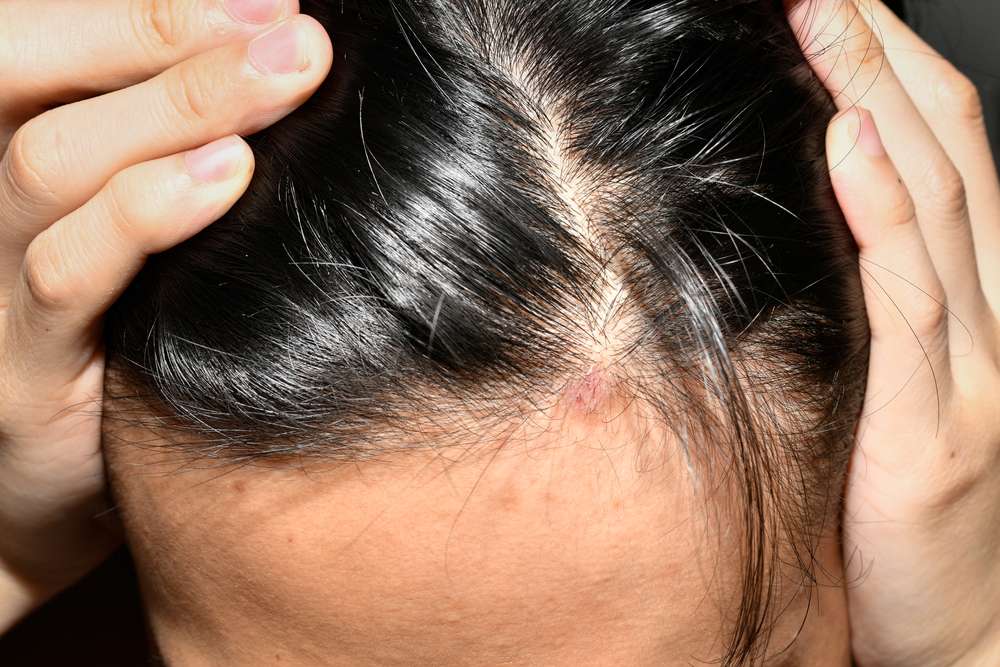Learn About The Role Of Shampoos In Caring For Scalp Psoriasis
Scalp psoriasis affects millions of people worldwide, causing uncomfortable symptoms like itching, flaking, and sometimes pain. While there isn't a cure for this chronic condition, proper scalp care—particularly through specialized shampoos—plays a crucial role in managing symptoms and improving quality of life. These medicated shampoos are specifically formulated to address the unique challenges of scalp psoriasis, helping to remove scales, reduce inflammation, and soothe irritation. Understanding how these products work and which ingredients to look for can make a significant difference in managing this challenging skin condition.

What Is Scalp Psoriasis And Its Common Symptoms?
Scalp psoriasis is a variant of psoriasis that specifically affects the skin on the head. It’s characterized by raised, reddish, often scaly patches that can extend beyond the hairline to the forehead, neck, and around the ears. The condition occurs when skin cells multiply too quickly—about 10 times faster than normal—causing cells to build up on the surface.
Common signs and symptoms include:
-
Red, raised, inflamed patches of skin
-
Silvery-white scales or plaques on the red patches
-
Dry skin that may crack or bleed
-
Intense itching and burning sensations
-
Temporary hair loss in severe cases (usually from scratching or harsh treatments)
-
Flaking that can be mistaken for dandruff
Unlike regular dandruff, scalp psoriasis patches are typically thicker and more inflamed, with more defined edges. The severity can range from mild cases with slight scaling to severe conditions covering the entire scalp.
Do Shampoos Actually Help Manage Scalp Psoriasis?
Yes, specialized shampoos do play a significant role in managing scalp psoriasis. These products aren’t just cosmetic—they’re therapeutic tools designed to address the specific pathophysiology of the condition. Clinical research has consistently demonstrated their effectiveness as part of a comprehensive treatment approach.
Medicated shampoos work through several mechanisms:
-
Removing scales and buildup from the scalp
-
Reducing inflammation
-
Slowing down rapid cell turnover
-
Moisturizing dry scalp areas
-
Relieving itching and discomfort
While shampoos alone may not completely eliminate scalp psoriasis, they’re often the first-line treatment recommended by dermatologists. For many patients with mild to moderate symptoms, regular use of appropriate shampoos can provide significant relief and help maintain remission periods. For more severe cases, they serve as valuable adjuncts to other treatments like topical steroids, oral medications, or light therapy.
Which Ingredients Are Most Effective In Scalp Psoriasis Shampoos?
The effectiveness of scalp psoriasis shampoos largely depends on their active ingredients. Different ingredients target different aspects of the condition:
-
Coal tar: One of the oldest and most effective treatments, coal tar helps slow skin cell growth and reduce inflammation. It’s particularly useful for reducing scaling, itching, and inflammation.
-
Salicylic acid: This ingredient works as a keratolytic, helping to soften and remove scales and crust. It enhances the penetration of other medications by removing buildup.
-
Ketoconazole: Though primarily an antifungal, ketoconazole can help when fungal infections complicate psoriasis or when seborrheic dermatitis co-exists with psoriasis.
-
Zinc pyrithione: This ingredient has both antifungal and antibacterial properties that can help reduce the yeast that might trigger flares.
-
Selenium sulfide: Similar to zinc pyrithione, it helps slow skin cell turnover and may reduce scaling.
-
Clobetasol propionate: This potent steroid helps reduce inflammation and is available in shampoo form for severe cases.
-
Natural ingredients: Some shampoos incorporate tea tree oil, aloe vera, or jojoba oil, which may have soothing properties, though their efficacy is less studied than conventional medications.
The most effective approach often involves rotating between different types of medicated shampoos to prevent resistance and maximize benefits while minimizing side effects.
How To Properly Use Shampoos For Scalp Psoriasis
The effectiveness of scalp psoriasis shampoos depends significantly on proper application technique. Simply lathering and rinsing immediately won’t deliver optimal results. Here’s the recommended approach:
-
Start with thorough wetting of the hair and scalp.
-
Apply a small amount of the medicated shampoo directly to the scalp, not just to the hair.
-
Massage gently into the affected areas. Avoid scratching, which can worsen inflammation.
-
Allow the shampoo to remain on the scalp for the time recommended on the label—typically 5-10 minutes for most products, though coal tar shampoos may need longer contact time.
-
Rinse thoroughly and follow with a gentle conditioner on the hair strands only (avoiding the scalp if your condition is active).
-
For severe cases, some dermatologists recommend applying the shampoo to a dry scalp before showering to increase absorption time.
Frequency of use varies by product type and symptom severity:
-
Coal tar and salicylic acid shampoos: 2-3 times weekly
-
Steroid-based shampoos: Typically limited to 2 weeks of continuous use
-
Maintenance shampoos: Often used 1-2 times weekly once symptoms improve
Which Types Of Shampoos Work Best For Different Severities Of Scalp Psoriasis
The severity of scalp psoriasis plays a crucial role in determining which shampoo will be most effective. Different formulations work better for different stages and presentations of the condition.
| Severity Level | Recommended Shampoo Types | Key Ingredients | Usage Frequency |
|---|---|---|---|
| Mild | Over-the-counter psoriasis shampoos | Salicylic acid, coal tar (1-2%), zinc pyrithione | 2-3 times weekly |
| Moderate | Stronger OTC or prescription shampoos | Coal tar (2-5%), ketoconazole, selenium sulfide | 2-3 times weekly |
| Severe | Prescription-strength medicated shampoos | Clobetasol propionate, high-concentration coal tar, combination products | As directed, typically with short-term use |
| Maintenance/Prevention | Gentle medicated shampoos | Lower concentrations of active ingredients, moisturizing agents | 1-2 times weekly |
For mild cases characterized by slight scaling and minimal redness, over-the-counter options containing salicylic acid or low-concentration coal tar often provide sufficient relief. Moderate cases with more pronounced plaques typically respond better to stronger formulations or prescription products. In severe cases with thick, widespread plaques, dermatologists often prescribe steroid-based shampoos like clobetasol propionate, though these require careful monitoring due to potential side effects with prolonged use.
Many patients benefit from a rotational approach, alternating between different types of medicated shampoos to maximize effectiveness while minimizing side effects or tolerance development.
When To Combine Shampoos With Other Psoriasis Treatments
While specialized shampoos are valuable tools for managing scalp psoriasis, they often work best as part of a comprehensive treatment plan. Understanding when and how to combine them with other therapies can significantly improve outcomes.
For mild to moderate scalp psoriasis, medicated shampoos may be sufficient as standalone treatment. However, when plaques are thick or symptoms are severe, combining approaches becomes necessary. Dermatologists often recommend using medicated shampoos alongside:
-
Topical steroids in lotion, foam, or oil form for better penetration
-
Vitamin D analogs like calcipotriene to slow skin cell growth
-
Scalp oils or solutions containing salicylic acid to soften scales before shampooing
-
Systemic medications for widespread or resistant psoriasis
-
Phototherapy, particularly narrow-band UVB treatments
The sequence of application matters as well. Generally, scales should be softened and removed with appropriate shampoos before applying other topical medications. This enhances penetration and effectiveness of subsequent treatments. Some patients benefit from overnight treatments with medicated oils followed by therapeutic shampooing in the morning.
Regular consultation with a dermatologist is essential when using multiple treatments to prevent potential interactions and optimize the regimen based on changing symptoms.
This article is for informational purposes only and should not be considered medical advice. Please consult a qualified healthcare professional for personalized guidance and treatment.




